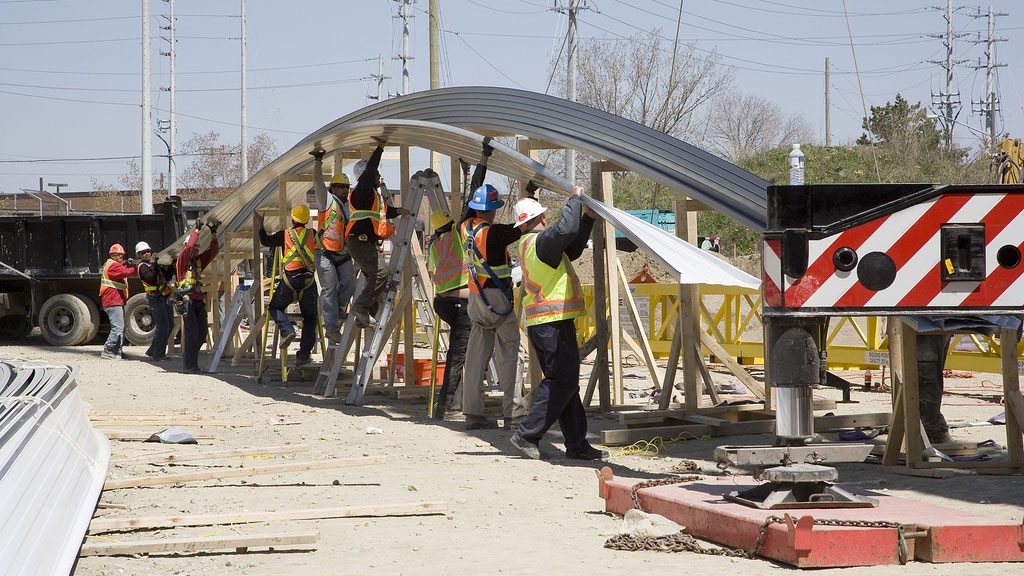The next federal election isn’t slated to take place until Oct. 19, but the Federation of Canadian Municipalities (FCM) has already prepared its wish list and presented it to the federal political leaders vying to become the next prime minister.
At its recent annual conference in Quebec City, FCM began its campaign to put local priorities at the centre of the upcoming election campaign.
“Whether it’s better roads, transit, housing or water systems, local governments are building better lives,” said incoming FCM president Bill Karsten in an announcement. “We make the most of the tools available, but this next election needs to empower us to get even more done for Canadians.”
The conference was attended by over 2,000 municipal officials, as well as the leaders of the four major federal political parties, including the Prime Minister.
Conference delegates passed seven resolutions calling for federal action on what they deemed to be important issues:
- Expand the airports capital assistance program;
- Gender-based violence;
- Federal climate change adaptation funding and support for regional disaster mitigation and flood planning;
- Municipal engagement in the Canadian broadband strategy;
- Prioritizing housing affordability;
- Rural economic development; and
- Zero-emission buses and municipal fleet vehicles.
Karsten says municipalities need “more robust tools,” in the form of fiscal and structural supports, to deliver the local services Canadians want.
That means a transit funding agreement for big cities and supporting the expansion of broadband coverage to rural municipalities.
FCM hopes a federal party promises a permanent and dedicated fund that allows municipalities to decide how it is spent.
A modern relationship means bringing municipalities to the table,
—Bill Karsten
Federation of Canadian Municipalities
“Currently there exists a wide variety of requirements for federal funding,” Karsten said.
“Infrastructure funding is application-based, transit funding is allocation-based and the gas tax funding is a tool that fast-tracks dollars directly to municipal authorities with few requirements beyond how it can be spent.”
Karsten says the FCM is looking for what it calls a more modern relationship between municipalities and the federal government.
“A modern relationship means bringing municipalities to the table in big decision-making processes,” he said.
“We’ve recommended a forum where municipal, federal and, where appropriate, provincial orders of government can meet to discuss the overlapping issues and challenges to find better solutions.”
Karsten says Canadians expect local government to solve such challenges as bringing broadband to every household and settling new immigrants.
“In many cases we are (already doing these things), but we can’t do it alone,” he said.
FCM’s Big City Mayors’ Caucus also called for a closer federal-municipal relationship.
The big city mayors invited delegations from each of the three largest parties to propose how they would work with local governments, and, in the words of the caucus, how they would empower them with robust and direct funding tools for transit and core infrastructure.
The mayors discussed a variety of challenges stalling progress across Canada’s three levels of government.
They said including cities in national decision-making is “a catalyst of collaboration and efficiency.”
“Cities will not take a back seat,” said Don Iveson, Edmonton’s mayor and caucus chairman.
“National challenges run straight through local governments, whether that’s legalizing cannabis safely and responsibly or driving economic growth.”
Rural communities also had their day at the conference.
A panel of rural experts discussed the challenges of attracting and retaining businesses and workers, and improving infrastructure with limited tools.
Better high-speed Internet access has the potential to be game-changing, they said.
FCM is the national voice of local government, with nearly 2,000 members representing more than 90 per cent of Canadians. It advocates on behalf of its members to ensure municipal priorities are reflected in federal policies and programs.











Recent Comments